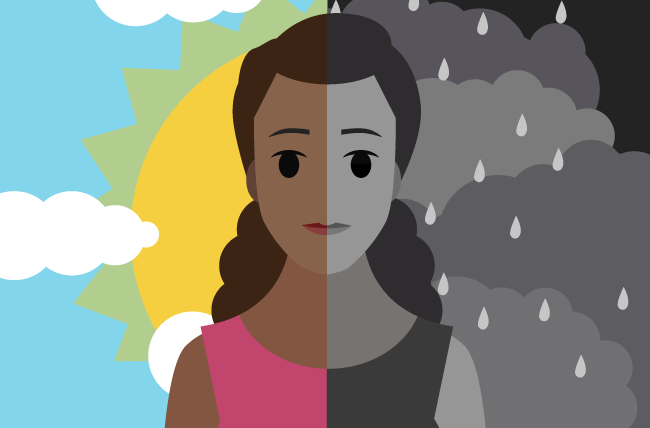
Albeit many of us have heard of Bipolar Disorder(BD), very few people understand it. Mostly, we assume that it’s a condition characterized by changing mood swings and nothing more. While that may be one of the key symptom to watch out for, there are other equally vital ones which can help one to know for sure if its bipolar or not.
Notably, teenagers and anyone who is stressed/traumatized may exhibit mood swings hence the need to learn more about the disorder so as to identify it more accurately, seek help and support those who have it.
Basically, Bipolar like depression is a mood disorder. However, unlike depression which is mostly characterized emotional lows (sadness, low energy, negativity, hopelessness), a person with bipolar experiences both emotional lows typical in depression and emotional highs (seem elated & euphoric, very active, full of energy, rushing thoughts & ideas). As such, the condition is characterized by extreme changes in mood, energy and activity levels which can be very disruptive. The article will focus on mania and hypomania because the depressive episode is slightly easier to identify.
In the mania or hypomania (less severe form of mania) phase, you’ll identify the following symptoms: the person is very energetic and believes they can do anything, have high libido, get little sleep and they don’t seem to need it, full of racing thoughts and ideas, very social and forthcoming (easily gives away valuable possessions), feeling exhilarated/euphoric, have high levels of self-confidence, self-esteem and self-importance (grandiose). Also, they tend to talk a lot and shuttle between ideas without paying attention.
While the manic phase can push someone to be more productive and feel euphoric, its mostly followed by an emotional low that leaves one worn-out and in financial, legal and relationship troubles. Also, it is during this episode when one makes poor decisions and embarks on risky behavior (casual & unprotected sex, shopping sprees, substance abuse, binge eating, fights, giving away belongings, making poor investment decisions).Also, though they may have good ideas, it may be hard for them to commit to plans hence making it difficult to complete projects.
When the disorder is not managed, it can result to serious problems that affect one’s quality of life including: drug dependency and abuse, suicidality and suicide, legal and financial problems, relationship problems and poor performance in school or the workplace. Suicidal attempts are common among people living with bipolar. In case of an attempt, they should be assisted to access professional help.Importantly, one needs to pay attention to the warning signs to avoid experiencing full blown and severe episodes. One also needs to avoid drugs and to adhere to medication.
The following coping strategies can be used to manage and support anyone with Bipolar Disorder: recognize the triggers and early symptoms of an episode and take steps to manage them, focus on things that help maintain a stable mood, have a regular routine, exercise regularly and eat healthy, have a regular sleeping pattern.
Importantly, Bipolar is a lifelong condition. However, if managed well, one can live a normal and satisfying life. Ensure adherence to medication and attend psychotherapy when stressor/triggers of an episode are identified.
By Dr. Mainye(Consultant Psychologist).